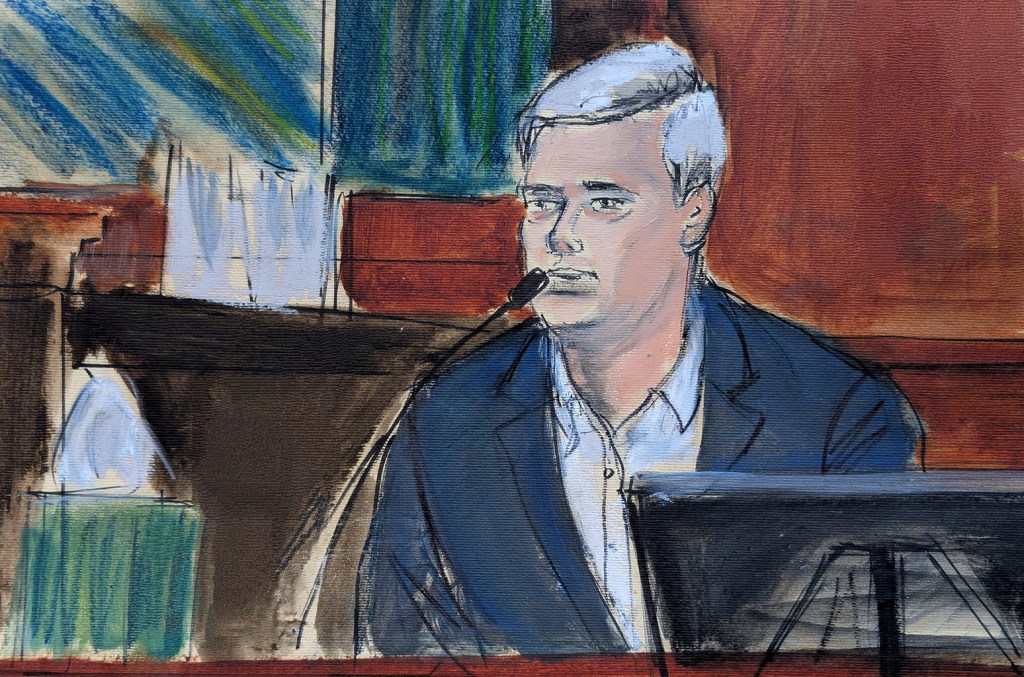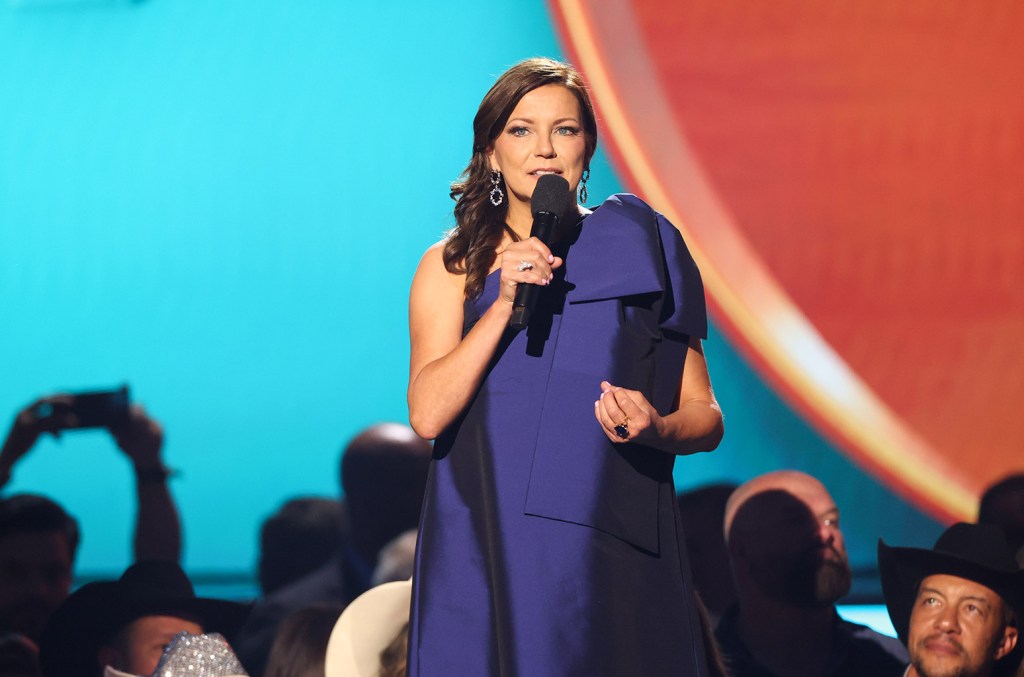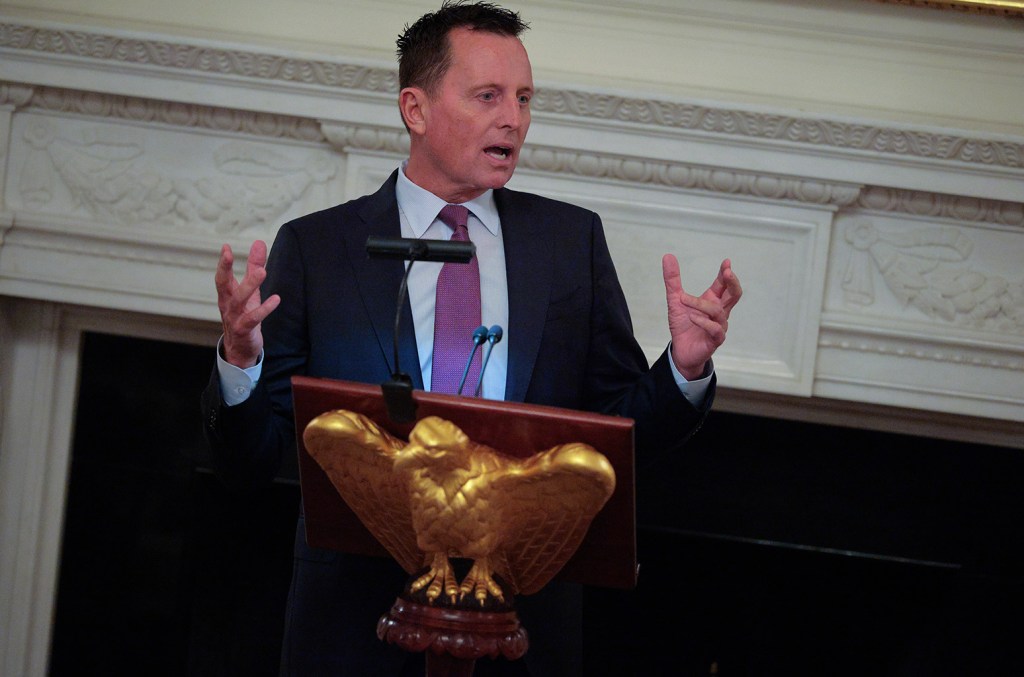Business
Page: 56
Universal Music Group (UMG) and the Beastie Boys have both reached confidential settlements to end lawsuits in which they accused restaurant chain Chili’s of using their music in social media advertisements without permission.
Two court filings on Wednesday (May 21) informed federal judges that Chili’s owner Brinker International agreed to settlements with both UMG and the Beastie Boys during a mediation session two weeks earlier. The terms of the settlements have not been revealed, as is typical in these types of lawsuits.
UMG and the Beastie Boys both sued Brinker in 2024, alleging Chili’s featured their copyrighted music in advertisements on TikTok, Instagram and other social media platforms without buying so-called “synch” licenses.
Trending on Billboard
While social media platforms provide huge libraries of licensed music for users to add to their videos, a brand must purchase a special synch license if it wants to include a song in any commercial or promotional content.
The Beastie Boys, who are famously averse to their music appearing in advertisements, claimed in a July lawsuit that Brinker used their iconic 1994 song “Sabotage” in a promotional video without permission.
To add insult to injury, the Beastie Boys said this Chili advertisement also showed three men in “70s-style” wigs, fake mustaches and sunglasses carrying out a “robbery” of food ingredients from a Chili’s. The rap trio claimed these visuals clearly evoked the “Sabotage” music video, which featured Adam “Ad-Rock” Horovitz, Michael “Mike D” Diamond and the late Adam “MCA” Yauch in similar attire.
Related
Click ‘Edit’ to Select Content
05/21/2025
UMG followed up with its own lawsuit this past October, alleging that dozens of Chili’s social media advertisements used unlicensed music from the label. UMG said the restaurant company’s wrongdoing extended to more than 60 songs by artists including Ariana Grande, Justin Bieber, Mariah Carey, Lady Gaga, Snoop Dogg, Lana Del Rey, ABBA, Luke Bryan, Travis Scott, Bruno Mars, Lil Nas X, Earth Wind & Fire and The Weeknd.
According to Wednesday’s court filings, both UMG and the Beastie Boys have reached agreements “in principle” to end their claims against Brinker. The settlement deals are currently being finalized, and both lawsuits are expected to be closed by early July.
A UMG rep declined to comment on the settlement news. Spokespeople for the Beastie Boys and Brinker did not immediately return requests for comment.
Numerous brands have faced lawsuits in recent years from music companies and artists over the use of copyrighted songs in social media ads. All three major labels sued drink maker Bang Energy for this in 2021, leading to closely-watched judgments in favor of UMG and Sony.
In July, Kobalt and other music publishers brought lawsuits against more than a dozen NBA teams over the use of songs in social media videos, leading to a bevy of settlements earlier this year. And just last month, a Detroit-area Ford dealership settled claims that it unlawfully featured Eminem’s “Lose Yourself in TikTok videos.

Jurors at Sean “Diddy” Combs’ sex-trafficking trial heard testimony Wednesday (May 21) from a psychologist about abusive relationships and from one of the hip-hop mogul’s former assistants, who was granted legal immunity before he took the stand.
Midway through the second week of Diddy’s trial, prosecutors called Dawn Hughes, a clinical psychologist who also testified at the sex abuse trials of disgraced R&B singer R. Kelly and NXIVM sex cult leader Keith Raniere, as well as in Johnny Depp’s civil defamation case against Amber Heard.
Hughes is one of many witnesses already called by prosecutors, who claim Combs coerced longtime girlfriend Cassie Ventura and others into participating in drug-fueled sex shows known as “freak-offs.” Defense attorneys have said the events were consensual.
On the stand, Hughes said it’s common for victims of abusive relationships to stay for years because they feel trapped: “They experience a tremendous amount of shame, humiliation, degradation,” Hughes told the jury, as reported by CNN, before later adding that victims often use substances to “numb” themselves.
Later in the day, the jury heard from George Kaplan, a former assistant to Diddy who was subpoenaed to testify, according to NBC News. After concerns that Kaplan might invoke his Fifth Amendment right to not testify, prosecutors granted him immunity so that he could do so without concern of prosecution.
Kaplan testified that part of his job was setting up and cleaning up rooms for freak-offs, after which he would often find liquor bottles and baby oil strewn around the hotel rooms. He said he understood that Diddy’s reputation had to be closely safeguarded: “Protecting him and protecting his public image was very important and that was something I was very keen on doing,” Kaplan said.
Combs was indicted in September, charged with running a sprawling criminal operation aimed at facilitating the freak-offs — elaborate events in which Combs and others allegedly pressured Ventura and other victims into having sex with escorts while he watched and masturbated. Prosecutors also say the star and his associates used violence, money and blackmail to keep victims silent and under his control. (Read Billboard‘s full explainer of the case against Diddy here.)
Once one of the music industry’s most powerful men, Combs is accused of racketeering conspiracy (a so-called RICO charge), sex trafficking and violating a federal prostitution statute. If convicted on all of the charges, he faces a potential life prison sentence.
During the first week of the trial, Ventura herself spent four days on the stand detailing how Combs allegedly controlled and physically abused her during their 11-year relationship. She said the sex parties left her feeling “humiliated” but that she felt she had no choice but to participate.
Defense attorneys maintain that Ventura and other women consensually took part in the sex parties. They’ve admitted that Combs had committed domestic violence during his and Ventura’s “toxic” relationship and had unusual sexual preferences, but that he had never coerced her into participating in his “swinger” lifestyle.
While cross-examining Ventura, Combs’ attorneys showed jurors huge numbers of text messages and emails between the couple — some romantic, others graphically sexual — in an effort to show that Ventura was a willing and, at times enthusiastic, participant in the freak-offs.
The trial will continue Thursday (May 22), first with more testimony from Kaplan and then from rapper Kid Cudi, who will likely be asked about an infamous incident in which Combs allegedly set Cudi’s car on fire as payback for dating Ventura. Cudi, a surprise witness, was originally going to take the stand on Wednesday, but his testimony was postponed.
Country music star Martina McBride headed to Capitol Hill on Wednesday (May 21) to speak out in support of the NO FAKES Act, arguing the legislation is necessary to protect artists in the AI age.
If passed, the bill (officially titled the Nurture Originals, Foster Art and Keep Entertainment Safe Act), which was recently reintroduced to the U.S. House of Representatives and the U.S. Senate, would create a federal protection against unauthorized deepfakes of one’s name, image, likeness or voice for the first time. It is widely supported by the music industry, the film industry and other groups.
Just prior to McBride’s testimony, the Human Artistry Campaign sent out a press release stating that 393 artists have signed on in support of the NO FAKES Act, including Cardi B, Randy Travis, Mary J. Blige and the Dave Matthews Band.
Trending on Billboard
In her testimony to the U.S. Senate Judiciary Subcommittee on Privacy, Technology and the Law, McBride called unauthorized deepfakes “just terrifying” and added, “I’m pleading with you to give me the tools to stop that kind of betrayal.” She continued that passing the NO FAKES Act could “set America on the right course to develop the world’s best AI while preserving the sacred qualities that make our country so special: authenticity, integrity, humanity and our endlessly inspiring spirit…I urge you to pass this bill now.”
McBride went on to express the challenges that musicians face as unauthorized AI deepfakes proliferate online. “I worked so hard to establish trust with my fans,” she said. “They know when I say something, they can believe it… I don’t know how I can stress enough how [much unauthorized deepfakes] can impact the careers [of] artists.”
During her testimony, the singer-songwriter pointed to more specific concerns, like what can happen to individuals after they pass away. “Far into the future after I’m gone,” she said, there is the threat now that someone could “creat[e] a piece of music or [a video of] me saying something that I never did.” She added that this issue is especially challenging for emerging musicians: “I think for younger artists, to be new, and to have to set up what you stand for and who you are as a person as an artist and what you endorse what you believe in…on top of having to navigate this… is devastating.”
Suzana Carlos, head of music policy for YouTube, also expressed her company’s support for the NO FAKES Act during the hearing. “As technology evolves, we must collectively ensure that it is used responsibly, including when it comes to protecting our creators and viewers,” she said. “Platforms have a responsibility to address the challenges posed by AI-generated content, and Google and YouTube staff [is] ready to apply our expertise to help tackle them on our services and across the digital ecosystem. We know that a practical regulatory framework addressing digital replicas is critical.”
Carlos noted how one’s name, image, likeness and voice (also known as “publicity rights” or “rights of publicity”) is only currently protected on a state-by-state basis, creating a “patchwork of inconsistent legal frameworks.” She noted that YouTube would like to “streamline global operations for platforms.”
Mitch Glazier, CEO/president of the Recording Industry Association of America (RIAA), which has served a strong role in pushing the NO FAKES Act forward, added during his testimony that time is of the essence to pass this bill. “I think there’s a very small window, and an unusual window, for Congress to get ahead of what is happening before it becomes irreparable,” he said.
Also during the hearing, Senator Amy Klobuchar (D-MN) brought up concerns about a “10-year moratorium” that would ban states and localities from implementing AI regulation — a clause the Republican-led House of Representatives baked into the Republicans’ so-called “big beautiful” tax bill last week. “I’m very concerned, having spent years trying to pass some of these things,” Klobuchar said. “If you just put a moratorium [on]…the ELVIS law [a new Tennessee state law that updated protections for deepfakes in the AI age] coming out of Tennessee…and some of the other things, this would stop all of that.”
The NO FAKES Act was introduced by Senators Marsha Blackburn (R-TN), Chris Coons (D-DE), Thom Tillis (R-NC) and Klobuchar along with Representatives María Elvira Salazar (R-FL-27), Madeleine Dean (D-PA-4) Nathaniel Moran (R-TX-1) and Becca Balint (D-VT-At Large). It was first introduced as a draft bill in 2023 and formally introduced in the Senate in summer 2024.
Unlike some of the state publicity rights laws, the NO FAKES Act would create a federal right of publicity that would not expire after death and could be controlled by a person’s heirs for 70 years after their passing. It also includes specific carve-outs for replicas used in news, parody, historical works and criticism to ensure the First Amendment right to free speech remains protected.
DaBaby has won a court order tossing out assault and battery claims over a 2022 brawl with the brother of his ex-girlfriend DaniLeigh, though the rapper could still be on the hook financially as the case continues against a bowling alley where the attack allegedly occurred. Los Angeles County judge Huey P. Cotton released an […]
Live Nation has elected acting Kennedy Center president and Donald Trump ally Richard Grenell to its board of directors, according to a recent disclosure from the Securities and Exchange Commission. Grenell was appointed to run the federally owned performing arts center in February following a Trump-led shakeup that saw the President appoint himself chairman of […]
LONDON — When the European Parliament passed sweeping new laws governing the use of artificial intelligence (AI) last March, the “world first” legislation was hailed as an important victory by music executives and rights holders. Just over one year later — and with less than three months until the European Union’s Artificial Intelligence Act is due to come fully into force — those same execs say they now have “serious concerns” about how the laws are being implemented amid a fierce lobbying battle between creator groups and big tech.
“[Tech companies] are really aggressively lobbying the [European] Commission and the [European] Council to try and water down these provisions wherever they can,” John Phelan, director general of international music publishing trade association ICMP, tells Billboard. “The EU is at a junction and what we’re trying to do is try to push as many people [as possible] in the direction of: ‘The law is the law’. The copyright standards in there are high. Do not be afraid to robustly defend what you’ve got in the AI Act.”
Trending on Billboard
One current source of tension between creator groups, tech lobbyists and policy makers is the generative AI “Code of Practice” being developed by the EU’s newly formed AI Office in consultation with almost 1,000 stakeholders, including music trade groups, tech companies, academics, and independent experts. The code, which is currently on its third draft, is intended to set clear, but not legally binding, guidelines for generative AI models such as OpenAI’s ChatGPT to follow to ensure they are complying with the terms of the AI Act.
Those obligations include the requirement for generative AI developers to provide a “sufficiently detailed summary” of all copyright protected works, including music, that they have used to train their systems. Under the AI Act, tech companies are also required to water mark training data sets used in generative AI music or audio-visual works, so there is a traceable path for rights holders to track the use of their catalog. Significantly, the laws apply to any generative AI company operating within the 27-member EU state, regardless of where they are based, acquired data from, or trained their systems.
“The obligations of the AI Act are clear: you need to respect copyright, and you need to be transparent about the data you have trained on,” says Matthieu Philibert, public affairs director at European independent labels trade body IMPALA.
Putting those provisions into practice is proving less straight-forward, however, with the latest version of the code, published in March, provoking a strong backlash from music execs who say that the draft text risks undermining the very same laws it is designed to support.
“Rather than providing a robust framework for compliance, [the code] sets the bar so low as to provide no meaningful assistance for authors, performers, and other right holders to exercise or enforce their rights,” said a coalition of creators and music associations, including ICMP, IMPALA, international labels trade body IFPI and Paris-based collecting societies trade organization CISAC, in a joint statement published March 28.
Causing the biggest worry for rights holders is the text’s instruction that generative AI providers need only make “reasonable efforts” to comply with European copyright law, including the weakened requirement that signatories undertake “reasonable efforts to not crawl from piracy domains.”
There’s also strong opposition over a lack of meaningful guidance on what AI companies must do to comply with a label, artist or publisher’s right to reserve (block) their rights, including the code’s insistence that robots.txt is the “only” method generative AI models must use to identify rights holders opt out reservations. Creator groups says that robots.txt – a root directory file that tells search engine crawlers which URLs they can access on a website — works for only a fraction of right holders and is unfit for purpose as it takes effect at the point of web crawling, not scraping, training or other downstream uses of their work.
“Every draft we see coming out is basically worse than the previous one,” Philibert tells Billboard. “As it stands, the code of practice leaves a lot to be desired.”
Caught Between Creators, Big Tech and U.S. Pressure
The general view within the music business is that the concessions introduced in the third draft are in response to pressure from tech lobbyists and outside pressure from the Trump administration, which is pursuing a wider deregulation agenda both at home and abroad. In April, the U.S. government’s Mission to the EU (USEU) sent a letter to the European Commission pushing back against the code, which it said contained “flaws.” The Trump administration is also demanding changes to the EU’s Digital Services Act, which governs digital services such as X and Facebook, and the EU’s Digital Markets Act, which looks to curb the power of large digital platforms.
The perception that the draft code favors Big Tech is not shared by their lobby group representatives, however.
“The code of practice for general-purpose AI is a vital step in implementing the EU’s AI Act, offering much-needed guidance [to tech providers] … However, the drafting process has been troubled from the very outset,” says Boniface de Champris, senior policy manager at the European arm of the Computer and Communications Industry Association (CCIA), which counts Google, Amazon, Meta and Apple among its members.
De Champris says that generative AI developers accounted for around 50 of the nearly 1,000 stakeholders that the EU consulted with on the drafting of the code, allowing the process “to veer off course, with months lost to debates that went beyond the AI Act’s agreed scope, including proposals explicitly rejected by EU legislators.” He calls a successful implementation of the code “a make-or-break moment for AI innovation in Europe.”
In response to the backlash from creator groups and the tech sector, the EU’s AI Office recently postponed publishing the final code of practice from May 2 to an unspecified date later this summer to allow for changes to be made.
The AI Act’s key provisions for generative AI models come into force Aug. 2, after which all of its regulations will be legally enforceable with fines of up to 35 million euros ($38 million, per current exchange rate), or up to 7% of global annual turnover, for large companies that breach the rules. Start-up businesses or smaller tech operations will receive proportionate financial punishments.
Creators Demand Stronger Rules
Meanwhile, work continues behind the scenes on what many music executives consider to be the key part of the legislation: the so-called “training template” that is being developed by the AI Office in parallel with the code of practice. The template, which is also overdue and causing equal concern among rights holders, will set the minimum requirements of training data that AI developers have to publicly disclose, including copyright-protected songs that they have used in the form of a “sufficiently detailed summary.”
According to preliminary proposals published in January, the training summary will not require tech companies to specify each work or song they have used to train AI systems, or be “technically detailed,” but will instead be a “generally comprehensive” list of the data sets used and sources.
“For us, the [transparency] template is the most important thing and what we have seen so far, which had been presented in the context of the code, is absolutely not meeting the required threshold,” says Lodovico Benvenuti, managing director of IFPI’s European office. “The act’s obligations on transparency are not only possible but they are needed in order to build a fair and competitive licensing market.”
“Unless we get detailed transparency, we won’t know what works have been used and if that happens most of this obligation will become an empty promise,” agrees IMPALA’s Philibert. “We hear claims [from the European Commission] that the training data is protected as a trade secret. But it’s not a trade secret to say: ‘This is what I trained on.’ The trade secret is how they put together their models, not the ingredients.”
“The big tech companies do not want to disclose [training data] because if they disclose, you will be able to understand if copyrighted material [has been used]. This is why they are trying to dilute this [requirement],” Brando Benifei, a Member of the European Parliament (MEP) and co-rapporteur of the AI Act, tells Billboard. Benifei is co-chair of a working group focused on the implementation of the AI Act and says that he and colleagues are urging policymakers to make sure that the final legislation achieves its overarching aim of defending creators’ rights.
“We think it is very important in this moment to protect human creativity, including the music sector,” warns Benifei, who this week co-hosted a forum in Brussels that brought together voices from music and other media to warn that current AI policies could erode copyright protections and compromise cultural integrity. Speakers, including ABBA member and CISAC president Björn Ulvaeus and Universal Music France CEO Olivier Nusse, stressed that AI must support — and not replace — human creativity, and criticized the lack of strong transparency requirements in AI development. They emphasized that AI-generated content should not be granted the same legal standing as human-created works. The event aligned with the “Stay True to the Act, Stay True to Culture” campaign, which advocates for equitable treatment and fair compensation for creators.
“A lot is happening, almost around the clock, in front of and behind the scenes,” ICMP’s Phelan tells Billboard. He says he and other creator groups are “contesting hard” with the EU’s executive branch, the European Commission, to achieve the transparency standards required by the music business.
“The implementation process doesn’t redefine the law or reduce what was achieved within the AI Act,” says Phelan. “But it does help to create the enforcement tools and it’s those tools which we are concerned about.”
This year, Kacey Musgraves will be honored with the Songwriter Icon award at the National Music Publishers’ Association (NMPA) annual meeting. The NMPA will also honor longtime Nashville hitmaker Rhett Akins as its Non-Performing Songwriter Icon Award recipient this year for his three decades of contributions to country music, including songs performed by Brooks & Dunn, Blake Shelton, Thomas Rhett, Jason Aldean, Luke Bryan and more. The meeting will also feature a keynote conversation with Apple Music head Oliver Schusser.
The NMPA annual meeting, which will take place at Lincoln Center’s Alice Tully Hall on June 11 in New York, is known in the business as a state of the union for the music publishing sector each year and a gathering place for its top executives to mingle. Along with honoring some of the top songwriters in the industry, NMPA president/CEO David Israelite also gives a speech at each meeting, detailing how the publishing business is doing.
Trending on Billboard
Israelite has also been known to drop groundbreaking news every year in this speech. Last year, he targeted Spotify for cutting payments to songwriters and publishers by about 40% and announced his plan to send sending an official complaint to the Federal Trade Commission (FTC) as well as letters to the attorneys general of nine states and a list of consumer groups — urging them to stop Spotify’s efforts to bundle music and audiobooks into its premium tiers. That built on top of previous news that the NMPA had sent a cease and desist notice to Spotify for alleged unlicensed lyrics, video and podcast content on the platform, and thatthe Mechanical Licensing Collective (MLC) had sued Spotify. (In January, the MLC’s case was dismissed by a judge who said Spotify’s move to cut payments was supported by “unambiguous” regulations. The MLC said it plans to keep fighting.)
Other previous bombshell announcements have included major copyright infringement lawsuits against Roblox, Twitter and more, and legal action against 100 different apps for allegedly skimming music from digital services without a license.
This year’s annual meeting will include a special segment dedicated to the Billboard Songwriter Awards, which were scheduled to take place during Grammy week but were postponed due to the Los Angeles wildfires. The award recipients will be announced at the event.
“We are thrilled to honor Kacey Musgraves whose music has always been driven by lyric and melody,” says Israelite. “A consummate songwriter, she is a successful solo hitmaker and renowned collaborator. Additionally, we look forward to celebrating the career of Rhett Akins whose songwriting has been central to the growth of country music.
“We are particularly excited to feature the Billboard Songwriter Awards after our GRAMMY Week event was postponed. The honorees are incredibly deserving, and it will be a phenomenal special segment of the program.
“Finally, Oliver Schusser has been an innovator throughout his career and we are eager to get his perspective on the myriad of opportunities and challenges for digital services in the streaming economy.”
Michael Bublé will headline the City of Hope’s 2025 Spirit of Life gala on Wednesday Oct. 15. The event will be held at the Pacific Design Center in West Hollywood, Calif. As previously announced, the event will honor Tom Corson, co-chairman and COO of Warner Records, as the Music, Film and Entertainment Industry [MFEI] group’s 2025 Spirit of Life honoree.
“Like so many people, my family has been personally affected by cancer, and I know how important it is to have hope — and real answers,” Bublé said in a statement. “City of Hope is doing the work that changes lives, and I am thrilled to be part of this night honoring Tom and supporting the incredibly important groundbreaking work of this wonderful cause.”
Bublé’s oldest son was diagnosed with hepatoblastoma, a rare form of liver cancer that primarily affects young children, in 2016. The singer canceled a planned tour to spend time with his son during chemotherapy and radiotherapy. Bublé’s son has fully recovered.
Trending on Billboard
“This is about making a difference that lasts,” Corson added. “Cancer has touched all of our lives. What City of Hope is doing — fast-tracking research, delivering leading-edge care, and supporting survivors beyond the hospital — is nothing short of extraordinary. I’m proud to stand with this community to help move it forward.”
The music industry’s relationship with City of Hope spans five decades, beginning with Mo Ostin in 1973 and echoed today by the continued support of Warner Records and the broader artistic community.
“Aside from the Grammys, there are very few nights when the entire music industry gathers in one place — and this is one of them,” said Alissa Pollack, executive vice president of global music marketing at iHeartMedia and president of City of Hope’s MFEI board. “But unlike an awards show, this night is about something bigger than all of us: saving lives. I’m incredibly grateful to Tom Corson and Michael Bublé for using their platforms to support City of Hope’s mission. Their leadership makes this moment possible — and meaningful.”
“There’s nothing more powerful than this industry using its influence to help save lives,” said Evan Lamberg, president of Universal Music Publishing Group North America and chair of City of Hope’s MFEI board. “What makes the Spirit of Life Celebration so special is that it reminds us why we do this — not just to make music, but to make an impact. Supporting City of Hope means we’re helping push forward the research, care and compassion that cancer patients urgently need.”
Bublé, signed to Warner’s Reprise label, has amassed four No. 1 albums on the Billboard 200: Call Me Irresponsible (2007), Crazy Love (2009), Christmas (2011) and To Be Loved (2013). He has won five Grammys for best traditional pop vocal album, the second-highest tally of wins in the history of that category, topped only by the late Tony Bennett, with 14.
For more information about the Spirit of Life campaign or to get involved, contact mfeievents@coh.org.
LONDON — Field Day festival has issued a new statement in response to controversy around their parent company and a lineup boycott. The festival is due to take place in Brockwell Park, south London this coming Saturday (May 24).
Field Day festival is one of a number of music brands operated by Superstruct Entertainment, alongside Sónar Festival, Boiler Room and more. Superstruct Entertainment is owned by global investment firm KKR which, per Mixmag, holds stakes in weapons manufacturing companies, the Coastal GasLink pipeline, and multiple Israeli corporations that operate in occupied Palestinian territories.
In an open letter, a number of artists including Massive Attack and Brian Eno called on the festival to distance itself from KKR’s dealings, and 11 acts removed themselves from the lineup in protest. Last week (May 15), the festival issued a statement regarding the ownership situation which acknowledged the people “hurt and angry,” but explained that partnering with Superstruct Entertainment helped secure the future of the festival.
Trending on Billboard
Field Day was first held in 2007 in Victoria Park, and in 2021 partnered with AEG’s Goldenvoice as part of All Points East Festival. In 2023, the festival was acquired by Superstruct Entertainment and moved to Brockwell Park in Brixton. This year’s event is headlined by Peggy Gou and also features James Blake and Jungle on the lineup.
Since the statement, however, fallout has continued with a number of acts continuing to withdraw from the bill, including Midland and Mall Grab. As of publication, over half of the artists booked have withdrawn from the lineup, with just 23 acts remaining of an original 42.
On Tuesday (May 20), the festival shared a new statement to their Instagram page, acknowledging that their initial message did not do enough to distance themselves from Superstruct’s parent company. “We are passionately opposed to KKR’s unethical investments in Israel,” it read, while calling for a “Free Palestine.”
The message continued: “We cannot control who owns our parent company but we promise to make our – and your – voices, and the ethical values we regard as non-negotiable, heard and understood at all levels.”
The run-up to the events in Brockwell Park have been disrupted by a protest by a group of local residents and uncertainty if the festival slate would move forward. Wide Awake, Field Day, City Splash, Mighty Hoopla, Across The Tracks, all operated by Brockwell Live, are set to take place over a three-week period beginning on Friday (May 23).
Last week a High Court ruled that Brockwell Live did not have the correct planning permission from Lambeth Council to host the events, and that the promoters had exceeded the amount of usage days of the public park. On Monday, however, the festivals confirmed they would be going ahead after applying to Lambeth Council “for a new certificate of lawfulness” which enables the events to move forward.
Field Day statement in full:
The statement released on Thursday did not explain in full the position of the Field Day team or directly address legitimate concerns about investments in Israel by KKR, the owner of Field Day’s parent company, Superstruct. We apologise and wish to put that right here by making our position very clear.
Last year, the International Court of Justice, the world’s highest court, ruled that Israel illegally occupies Palestinian territory, is in violation of the international prohibition on apartheid, and is plausibly committing genocide in Gaza.
We would like to say, clearly and directly, that we stand with the people of Gaza and support the peaceful aims of the Palestinian civil organisations and everyone working tirelessly to give them a voice.
This includes the artists and audience members who expect us to amplify their voices when it really matters, and who we failed by not addressing this earlier. We join them in calling for an immediate end to military action and occupation and the provision of vital aid in Gaza without delay.
We said previously that partnering with Superstruct secured the future of the festival and our creative and operational independence; that the Field Day team had no knowledge or influence in KKR’s investment in Superstruct last year; and that we retain the same deeply held values Field Day was founded on. All of this is true.
However, we are sorry we did not say earlier what we unequivocally say now:
We are passionately opposed to KKR’s unethical investments in Israel. We cannot control who owns our parent company but we promise to make our – and your – voices, and the ethical values we regard as non-negotiable, heard and understood at all levels.
Many of you rightly challenged our previous post. We’re grateful for your comments and we respect the artists who have taken a stance. To the other artists on our lineup, we welcome and support you using your platform to stand against all forms of oppression, discrimination and genocide.
We say with pride and determination that everyone is welcome at Field Day, regardless of nationality, race, religion, gender or sexuality.
We believe music is uniquely capable of bringing people together and providing a space to express ourselves freely without discrimination, and we hope you will join us in that spirit this weekend.
This is what we stand for, and we regret not making that clearer before. Free Palestine.

Warner Music Latina signed three emerging urban artists who are creating a viral buzz on social media and the Billboard charts: DFZM (Colombia), Jombriel (Ecuador), and Milo Bvgatti (Venezuela). DFZM made his Billboard chart debut last November DFZM with “+57” in collaboration with Karol G, J Balvin, Feid, Ryan Castro, Maluma, and Ovy on the Drums. Jombriel hit No. 1 on the Billboard Argentina Hot 100 chart this March with his “Parte & Choke (Remix)” with Ryan Castro. Meanwhile, Bvgatti has already received stamps of approval from Feid, Jay Wheeler and Dalex. “At Warner Music Latina, we believe in the power of fresh voices from the Andean region to make waves globally,” said Roberto Andrade, MD of Warner Music Latina, in a statement. “We proudly welcome DFZM, Jombriel, and Milo Bvgatti — a new chapter begins, filled with music and momentum.” – Jessica Roiz
Southern California band Of Mice & Men signed with Century Media Records. The group released the single “Another Miracle” on May 8, marking its first new music since 2023. Of Mice & Men is currently on tour in the U.S., with festival dates including the Summer Daze Festival in Elko, Nev.; Warped Tour in Long Beach, Calif.; and Louder Than Life in Louisville, Ky.
Trending on Billboard
Jutes signed a global record deal with Position Music, which will release his new single, “Left on Dilworth,” on Wednesday (May 21). The singer-songwriter’s singles so far this year include “Red Velvet” with Ari Abdul, “House of Cards” and “SMUT”; previous album releases include Ladybug and Sleepyhead. He’s managed by Mike Maloian at 25/7.
Indonesian dream-pop duo Galdive signed with Mom + Pop Music, which released its new album, Blue, on May 9. The act’s song “Teach Me How to Love” has picked up steam on TikTok, where it has generated more than 16 million views, 1.8 million likes, and over 2,200 UGC posts, according to the label.
Armada Music struck a joint venture deal with Dutch electronic artist Joris Voorn spanning A&R, distribution, promotion and marketing. The label will work with Voorn on his upcoming album Serotonin, which is set for release in July. It will additionally leverage its publishing arm “to add creative value” to his work via “writing camps and collaboration,” according to a press release. Armada previously released Voorn’s remix of “Transmission” by Eelke Ekleijn.
Scouting for Girls signed a label services deal with Absolute. Next year, the British trio is releasing a new album, which Absolute will support with digital marketing, distribution, project management and a long-term strategic direct-to-consumer campaign.
Sub Pop signed Brooklyn-based trio Nation of Language and will release the band’s new music globally this year and beyond. The first release under the deal is the new single, “Inept Apollo.” The band will tour North America and Europe this fall.
Virgin Music Latin signed a global agreement with rising Cuban act Wampi for the release of his forthcoming debut studio album, El Rey de la Habana. His first single under the label is “Veni,” an uptempo track that represents the Cuban Reparto music scene. El Rey de la Habana will feature collaborations with Cimafunk, Ibeyi, Los Van Van, Maffio, Michael Brun, and more. – Jessica Roiz
Mom+Pop Music signed Minneapolis artist Mother Soki, whose single “Rivet Gun” has been growing on TikTok. She is managed by Avalanche in Los Angeles.
Nettwerk signed indie-pop band Joseph, composed of sisters Natalie and Meegan Closner. The first release under the deal is the single “Bye and Bye,” a track from the duo’s forthcoming album (its first without sister Allie). The band is kicking off a round of tour dates on June 13 in Spokane, Wash.
Singer-songwriter N8NOFACE signed with Stones Throw, which released his new song, “Waiting to Wait for You,” last week. N8NOFACE is touring with Eyedress on the Stoner Tour this summer.
Scout Willis signed with WME for global representation. The singer-songwriter is currently recording her second studio album on the heels of singles “Over and Over” and “Take Me” last year. The album is slated for release this fall.
Atlanta-based five-piece band Penelope Road signed to Warner Records. The first release under the deal is the single “Out Tonight.” According to a press release, the song has already racked up “millions of views” leading up to its official release. The band, which is set to embark on a summer headlining tour on June 12 in Charleston, S.C., is managed by Lindsay Brandt.
Giant Music, a division of The Azoff Company, signed rock band Riff Wood. The band is independently producing its debut album, Tough Luck, which is set for release this summer. It’s been preceded by singles including “Blur” and “Stay a Little Longer,” the latter serving as its first release on Giant. Riff Wood is embarking on a summer tour starting July 29. The band, which won Utah’s Battle of the Bands last year, is managed by Rob Cavallo‘s Done Deal and Echo Street.

 State Champ Radio
State Champ Radio 








